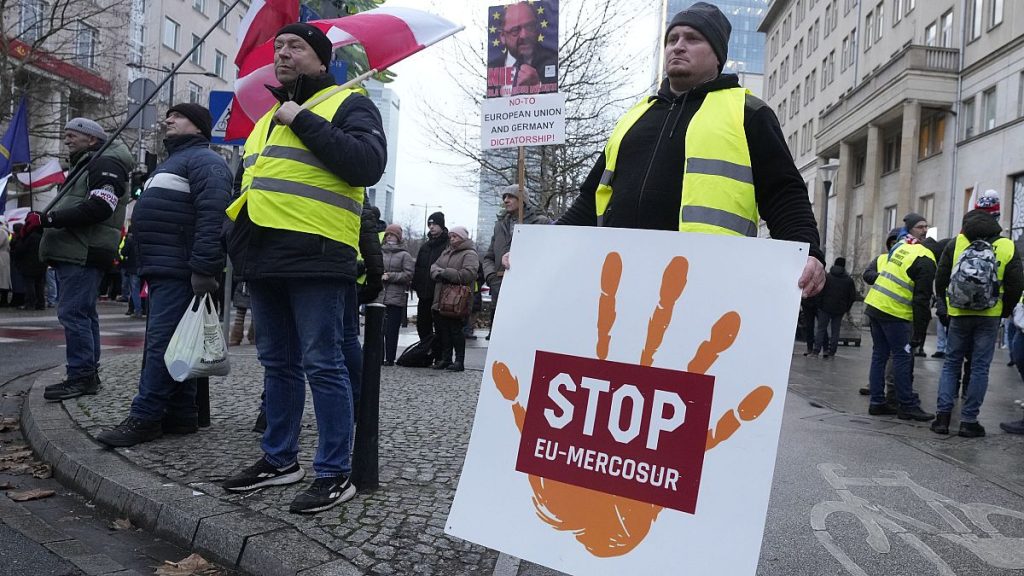The European Commission’s proposed financial support for farmers potentially affected by the EU-Mercosur trade agreement has sparked confusion and concern within the agricultural sector. The proposed mechanism, described variously as a “fund” or a “reserve,” aims to act as a safety net in case the agreement negatively impacts European agricultural markets, particularly sensitive sectors like beef and poultry. However, the Commission insists this support would only be triggered in a “worst-case scenario” and maintains that it anticipates no need for its deployment due to existing safeguards within the agreement itself.
The ambiguity surrounding the nature of this financial instrument stems from the interchangeable use of the terms “fund” and “reserve.” A “fund” typically signifies proactive, guaranteed financial support aimed at bolstering specific sectors or preventing potential crises. In contrast, a “reserve” represents a reactive measure, with funds disbursed only in response to a verified crisis. The Commission’s fluctuating terminology has created uncertainty among farmers about the certainty and accessibility of this potential financial support. While the Commission assures that the intention is to provide an “insurance policy,” the lack of clarity on the mechanism’s operational details has fueled apprehension.
Further complicating matters are conflicting statements from Commission representatives. While Commissioner Šefčovič initially described the instrument as a “fund” worth at least €1 billion, a Commission representative later denied the existence of a compensation fund altogether, referring to it instead as an “additional reserve.” This contradictory messaging has exacerbated anxieties within the agricultural sector, leaving farmers unsure about the nature and extent of the proposed support. The Commission’s subsequent clarification that the funding will be allocated within the context of the EU’s long-term budget, specifically the Common Agricultural Policy (CAP), suggests it will likely function as a reserve, similar to the existing annual agricultural reserve of €450 million, activated only under exceptional circumstances.
Within the CAP framework, the distinction between a fund and a reserve carries significant weight. Funds, such as the European Agricultural Guarantee Fund (EAGF) and the Rural Development Fund, provide proactive financial support for income support schemes and rural development initiatives, respectively. Conversely, reserves, like the annual agricultural reserve, are reactive instruments deployed only in response to specific crises. The proposed Mercosur support mechanism, by being linked to the CAP and described as a reserve by Commission officials, suggests a reactive rather than proactive approach to supporting farmers potentially affected by the trade agreement.
Despite the ongoing confusion, the Commission emphasizes the precautionary nature of this financial instrument. They reiterate their confidence in the safeguards embedded within the Mercosur agreement, including close market monitoring and strict import limits on sensitive agricultural products. These measures, they argue, will effectively protect the EU agricultural sector from significant disruption, rendering the reserve unnecessary. The Commission’s insistence on the unlikely need for this financial support underscores their belief in the agreement’s overall positive impact and their commitment to preventing any negative repercussions for European farmers.
The Commission draws parallels with previous measures, such as the Brexit Adjustment Reserve (BAR), designed to mitigate economic disruptions from the UK’s withdrawal from the EU. However, the BAR’s implementation has faced criticism due to delays and vague access criteria, leaving some farmers, like sugar beet producers, feeling unsupported despite experiencing export losses. The Commission aims to learn from the BAR experience and ensure that the Mercosur reserve, if needed, operates efficiently and effectively, providing timely and accessible support to affected farmers. They maintain that this “insurance policy,” regardless of its label as a “fund” or “reserve,” demonstrates their commitment to protecting European agriculture and reassuring farmers that support is available should the trade deal create unforeseen difficulties. The Commission’s ultimate goal is to build confidence in the Mercosur agreement and demonstrate their commitment to supporting European farmers throughout its implementation.

